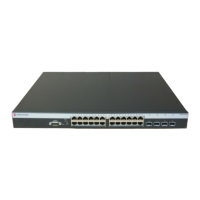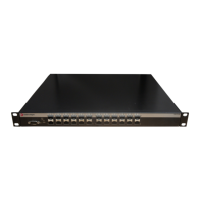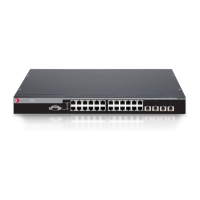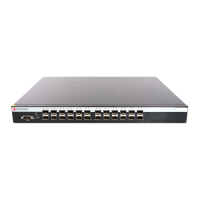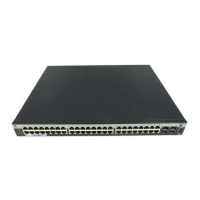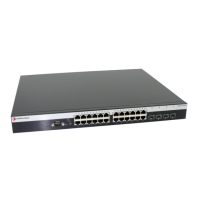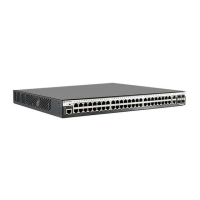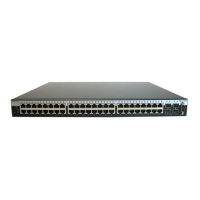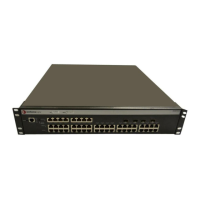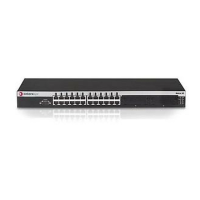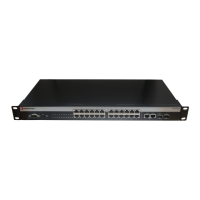Configuring STP and RSTP
Fixed Switch Configuration Guide 15-23
2. Set a new hello time interval:
set spantree hello interval
Valid interval values are 1–10.
Adjusting the Forward Delay Interval
When rapid transitioning is not possible, forward delay is used to synchronize BPDU forwarding.
The forward delay interval is the amount of time spent listening for topology change information
after an interface has been activated for bridging and before forwarding actually begins. This
delay is required because every device must receive information about topology changes before it
starts to forward frames. In addition, each port needs time to listen for conflicting information that
would make it return to a blocking state. Otherwise, temporary data loops might result.
Use this command to adjust the forward delay interval setting:
set spantree fwddelay delay
Valid delay values are 4–30.
Defining the Maximum Age Time
If a bridge does not hear BPDUs from the root bridge within the interval (number of seconds)
specified as maximum age time, it assumes that the network has changed and recomputes the
Spanning Tree topology. By adjusting this value, you can configure support for a maximum
diameter from the STP root of up to 40 bridges. By default, Enterasys switching devices are set
with a maximum age time of 20 seconds, supporting a 20-bridge span from the root bridge.
Use this command to adjust the maximum age setting:
set spantree maxage agingtime
Valid agingtime values are 6–40 (seconds).
Enabling the Backup Root Function
Disabled by default on stackable, and standalone fixed switch devices, the backup root function
works only when the backup root-enabled bridge is directly connected to the root bridge. The
backup root function prevents stale Spanning Tree information from circulating throughout the
network in the event that the link between the root bridge and the backup root-enabled bridge is
lost. If this happens, the backup root will dynamically lower its bridge priority relative to the
existing root bridge's priority, causing it to immediately be selected as the new root bridge.
Use this command to enable the backup root function on an SID:
set spantree backuproot sid enable
When SNMP trap messaging is configured and the backup root function is enabled, a trap
message will be generated when the backup becomes the new root of the network.
Adjusting RSTP Parameters
Since rapid link reconfiguration can happen only on a point-to-point link or an edge port (a port
that is known to be on the edge of a bridged LAN), in some cases you may want to define them
administratively. However, since edge port and point-to-point links are automatically detected on
Enterasys switching devices, in most cases you will not need to change these default port
designations.
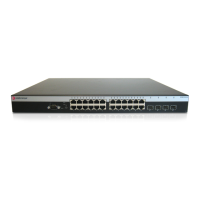
